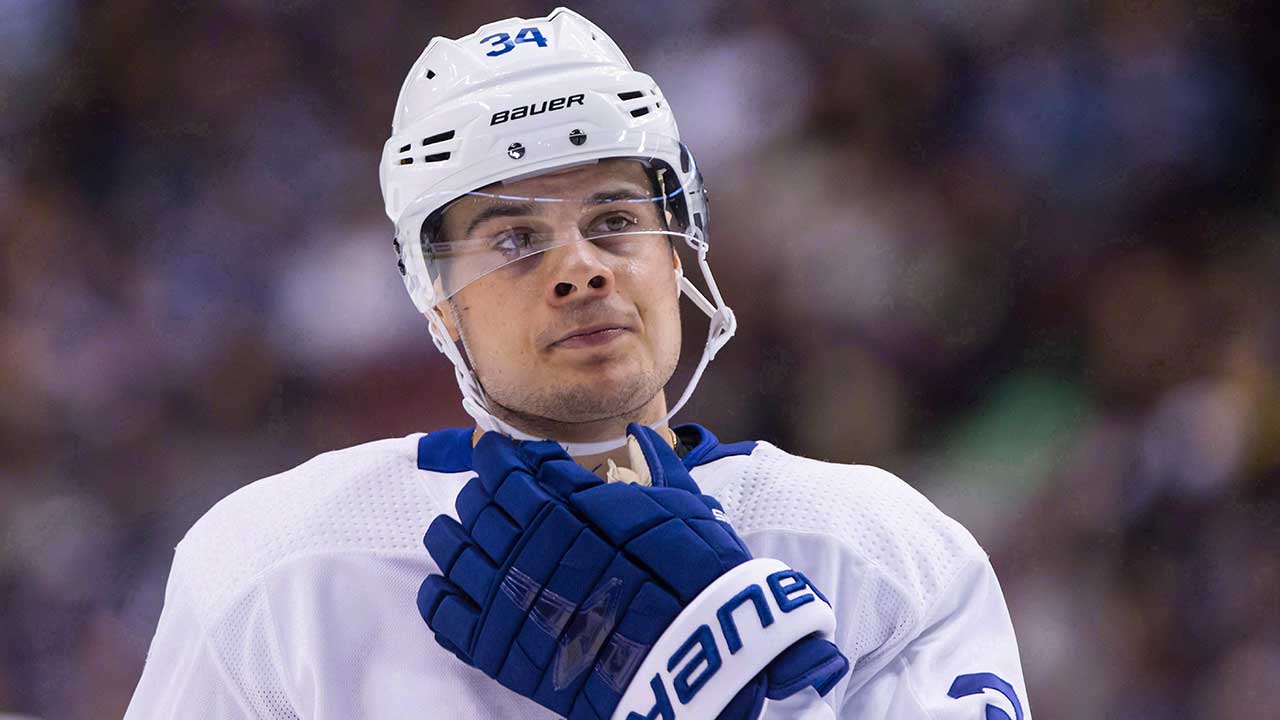I still find it surprising that my comments last week on Sportsnet 590 The Fan about Auston Matthews’ relationship with Mike Babcock touched such a raw nerve in Toronto.
When asked on the morning show about Matthews’ play, my first thought was: “There has to be a strong bond between a coach and his best players. There has to be a trust.”
I also said: “Babcock lost Matthews.”
That is my year-end observation on the Toronto Maple Leafs franchise player. And it is based purely on my instincts following a 12-year professional career. It is nothing more, nothing less.
More specifically, my take on the situation comes from my experience as a role player, an inside perspective where I witnessed first-hand the relationship dynamics between star players and head coaches.
I have no doubt that with this generation of players, the challenges facing coaches today, including Mike Babcock, are more complicated than ever. Child prodigies are groomed much differently now. These days, seven-year-old hockey phenoms can become NHL superstars by the age of 18. Connor McDavid, Matthews, and Jack Eichel can arrive and dominate as rookies, turning their second contracts into some of the richest in NHL history.
Because of that, they must also be held to a higher standard and expected to handle any learning curves. Sorry boys, you can’t have it both ways.
In many ways, the relationships between today’s young stars and their respective coaches is far more intriguing than what I witnessed years ago with teammates such as Dino Ciccarelli in Washington, Pat Verbeek in Hartford and Brian Leetch in New York. Each of them battled with their coaches over ice time.
In New York, my teammates and I watched Mike Keenan verbally threaten to trade Leetch for Chris Chelios in the hopes of getting more out of Leetch. But threats like that pale in comparison to actually taking away the thing that matters most to star players: ice time.
[snippet id=3816507]
Hockey history is littered with tales of ‘go-to’ players briefly losing the trust of their coaches. But in their own unique way, they all tend to find a way to overcome it. It has ranged from silence to rage, to literally needing a shoulder to cry on. Some refuse to talk about it while others obsess about it.
Whatever the case, as a teammate, it was always abundantly clear to me how lost and powerless star players felt at times like these and how deeply it affected them. Matthews’ play against Boston did not meet Babcock’s expectations, and so he was coached accordingly and his ice time suffered. Matthews didn’t start during opening face-offs. He didn’t start power plays off TV time-outs. He didn’t get quality situational face-offs and he was pulled off the ice early to get a more “appropriate” match-up. Babcock even tried giving him new linemmates. These are all typical consequences when a coach loses a level of trust or faith in a player’s game.
It’s really not that hard to figure out.
A hockey player’s body language also has a difficult time lying. Watching Matthews with each passing game, he displayed an increasing level of frustration. And in this case, the frustration was a two-way street. Matthews never got his game back in time and Babcock never got Matthews’ play up to what he expected from his franchise player. Yet somehow this week, based on the reaction to my comments on the radio, I apparently revealed some deep, dark secret.
To my knowledge, there is no major rift between Babcock and Matthews. There is no conspiracy, but trust me, it isn’t fake news either. Head coaches and their teams are at the mercy of their star players. They will only go as far as those stars will lead them. Plain and simple: coaches must build bridges.

I have no idea how Matthews feels about his coach, nor did I report it. What I do know is Leetch found a way to overcome his frustration with Keenan and Keenan found a way to raise Leetch’s level of play to historic proportions, to the extent that Leetch became the first American-born player to win the Conn Smythe Trophy at the end of a tumultuous season.
The only question Maple Leafs fans should concern themselves with now is how fast can Babcock reach Matthews to help him become the player he’s expected to be.
History also tells us however that not every relationship between a star and a head coach turns out well. In the meantime, I’ll sum up these relationships borrowing a phrase Matthews used in response to Boston’s early series dominance: “S— happens. That’s hockey.”








